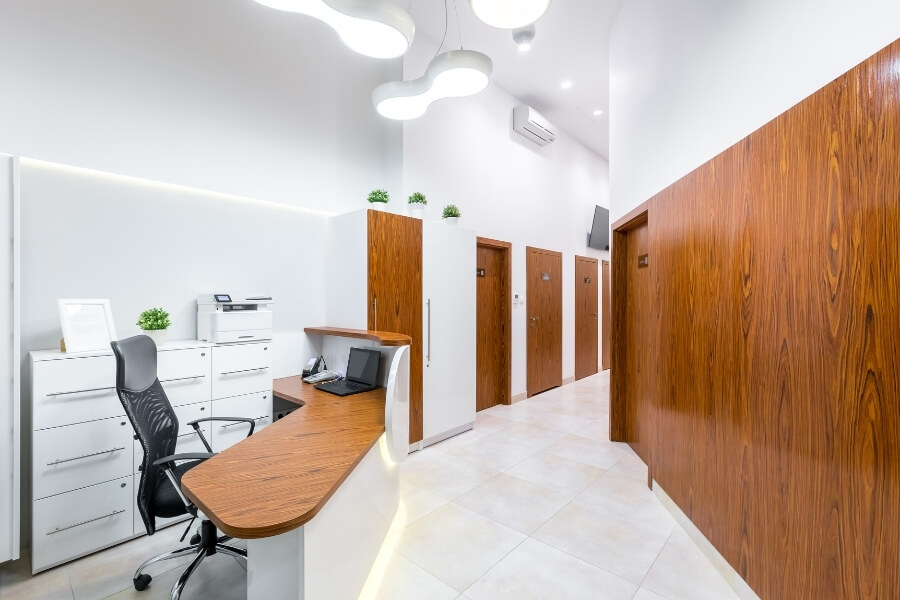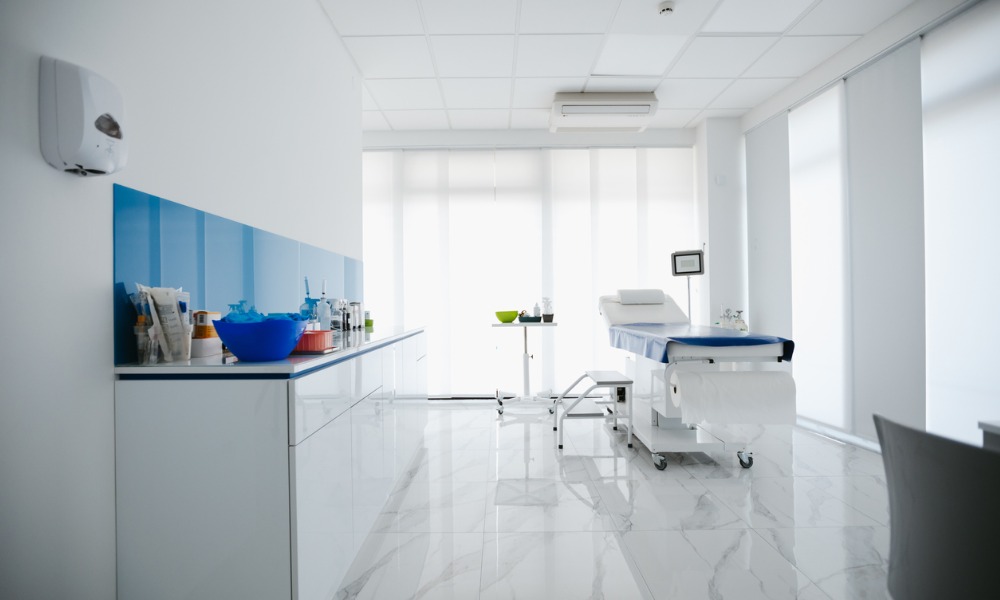Leasing a new medical office is a significant decision for your practice. The space you end up renting will become synonymous with your practice, so selecting the right office is an essential part of keeping your clients happy.
Your medical office should have the space you need to handle all your operations on-site, including storage for your equipment. It should also make your patients feel comfortable while being safe and easily accessible.
Negotiating the lease is also important because you don’t want to end up locked in a contract that lacks the flexibility or features you need to succeed. This guide will take you through a series of questions you should ask as you navigate the process of leasing medical office space.
Things to Consider When Leasing a Medical Office
Every medical office is different, and you could have many options available, but there are some easy ways to narrow your choices down from the beginning. You’ll accomplish this by comparing the spaces on the market with some basic criteria.
Location
Perhaps the most crucial aspect of your medical office is the location. Your space should sit in an accessible part of town that’s safe for visitors. You might also look for something along major public transportation routes or within downtown areas where walk-up traffic is possible.
Size
The office’s size is vital to your practice’s success because you’ll need enough room for all patients and staff to cohabitate comfortably. Leasing too much space could leave you overpaying for the office and could give it a cavernous feel, while a place that’s too small would leave everyone cramped.
Cost
You won’t want to pay too much for your medical office, although the amount you’re willing to pay likely depends on your practice. It might be worth it for some medical professionals to pay more for a downtown office because of the additional traffic it will attract, while others are content to sign a cheaper lease in the suburbs and rely on repeat patients. Only you know the amount you’re comfortable paying.
Considering these aspects makes it easier to narrow your search to a manageable number of properties. You can then begin asking some questions to find the right property with lease terms you can accept.
10 Essential Questions to Ask About Your Medical Office Lease

Your search for medical office space will require you to ask your landlord questions throughout the process. Gathering as much information as possible makes the decision-making process far more transparent.
1. Who Else Is in the Building?
You’ll want to learn a little about who else is leasing space within the building. Patients might not appreciate having a loud venue like a pub or restaurant nearby because they’ll be seeking a calming atmosphere. You might also ask how much turnover there is at the property to ensure your neighbors are likely to be there long-term.
2. How Long Is the Lease?
The length of your lease is negotiable, but you’ll want to inquire about your landlord’s desired terms early in the process. You can then use this information during your discussions, potentially acquiring other concessions from the property owners in exchange for agreeing to these terms.
3. Will Rent Increase?
Your current rental rate is essential, but you’ll also want to inquire about potential increases moving forward. The landlord could have some planned rent increases in the coming years, so having those in writing allows you to look at the big picture when choosing a property.
4. Does It Include Utilities?
Figuring out how much the space will ultimately cost goes beyond the price point on the lease. Heating, cooling, electricity, internet, water, and other utilities could quickly make your great-sounding deal far more expensive throughout your stay. Ask who’s responsible for utilities and how much they typically cost early in the negotiation process.
5. Are There Additional Expenses?
There could be other expenses beyond utilities that you’re responsible for paying. Things like garbage collection, extra insurance, and security costs could end up being the responsibility of the building’s tenants and will cost you additional money every month.
6. Who Handles the Maintenance?
Your space, common areas, and the building’s exterior will all require maintenance, so you’ll want to learn who’s responsible for paying for these jobs. Arranging for maintenance takes you a bit of time, too. Inquiring whether the landlord hires these contractors for the tenants is a good idea as you learn about the property.
7. Can You Alter the Space?
The space you rent could check many boxes, but it’s a good idea to see if you can alter the office before your tenancy begins. This question is crucial for medical offices because you could be forced to retrofit the space to accommodate your equipment.
8. How Does Parking Work?
Some buildings have large parking lots where accommodating everyone is rarely an issue. Other properties don’t have this luxury, so the system could involve paid parking or parking passes. Learning about the parking situation is advisable because you want to eliminate as much hassle as possible for your patients.
9. What’s the Move-In Date?
Hammering down a specific move-in date is vital as you get closer to selecting a medical office building. Some landlords can accommodate you quickly, while others might have to complete significant renovations or wait for an existing tenant to leave. Move-in dates are highly personalized, but you’ll want to go over your options before signing an agreement.
10. Is It ADA Compliant?
Your medical office is legally required to be compliant with the Americans with Disabilities Act. Some buildings are a bit behind, though, so you’ll want to ask your landlord to verify the property’s status and negotiate any necessary improvements before signing a lease.
Most of these questions are pretty standard, but they’ll give you a clearer vision of how your medical practice would look in a particular building. Learning as much as possible about the available properties makes it simpler to choose the facility that best works for you.
Get the Expert Assistance You Need
Selecting a suitable space for your medical office is a process vital to your success, so it can make sense to get some expert help. The Genau Group provides skilled medical tenant representation, concessions acquisitions, and project management services through the Washington, D.C., area.
Our team can help you find the perfect property to accommodate your medical practice and negotiate a contract that makes sense for you. Contact The Genau Group today for more information on our medical tenant representation services.






